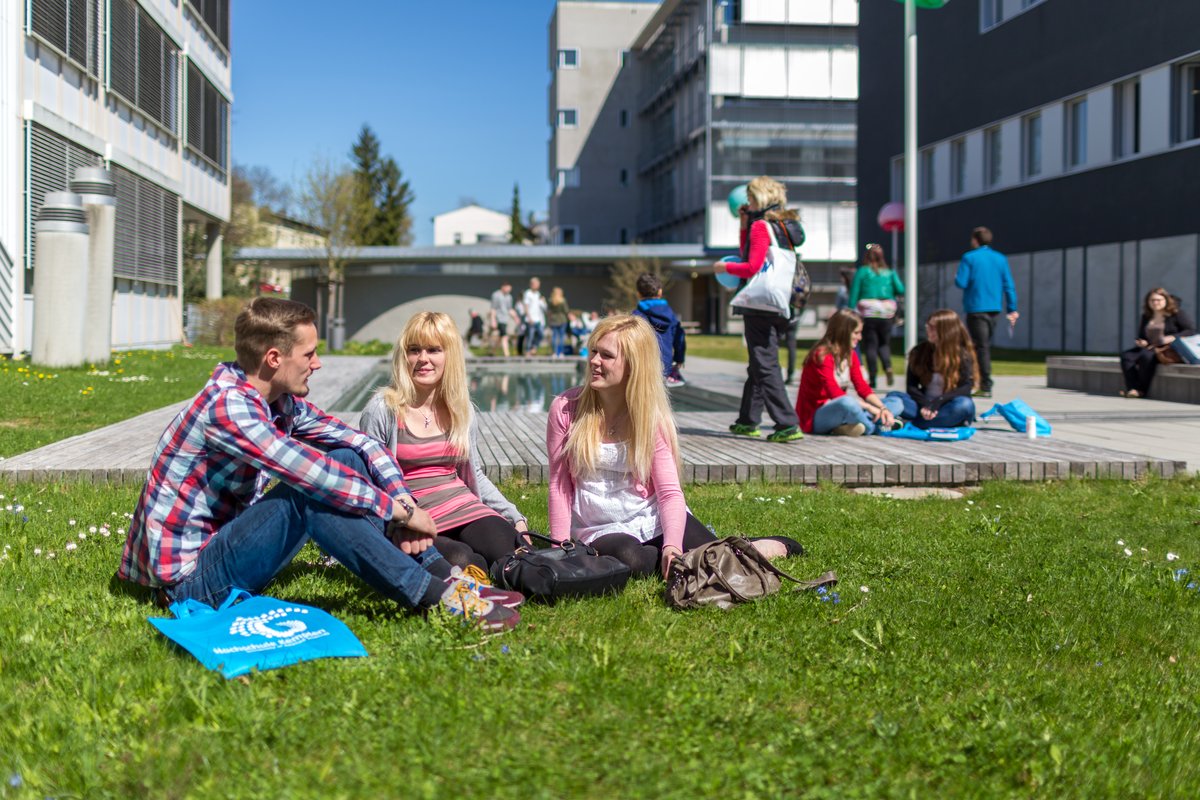
You see the world through your eyes. Wondering how it works. How do mobile communication, GPS and renewable energy generation function? You are interested in groundbreaking innovations and new sustainable technologies.
As a student on the degree programme in electrical engineering and information technology, you will learn all about designing circuits, programming microcontrollers and controlling robots. You understand complex systems and can design automatic production lines, intelligent autonomous vehicles or wireless networks.
- Smart grid projects in renewable energy technology
- Incorporating artificial intelligence into production processes
- Software development healthcare applications
At a glance
Award
Bachelor of Engineering (B. Eng.)
Study mode
full-time, dual
Standard duration
7
ECTS credits
210
Starts
winter semester
Restricted admission
no
Taught in
German
Faculty
Electrical Engineering
Study abroad
optional
Accreditation
ASIIN
Details about this course
During the foundation course (semesters 1 and 2), you will primarily learn the fundamental mathematical, scientific and technical principles. The examinations for this part of the programme are designed to train you in the correct learning methods and lay the foundation for studying towards your degree.
The advanced course (semesters 3 to 7) covers the main core and specialist modules relevant to your future career. Numerous internships demonstrate and reinforce how theoretical knowledge is applied in practice. You will spend your fifth semester on industrial placement.
The practical semester gives you the chance to apply the theoretical knowledge you have acquired so far in a highly vocational engineering role. This gives you an understanding for the interrelation between theory and practice and prepares you systematically for your future career.
From the sixth semester on, you can start specialising in energy and automation engineering or information and communications technology. Both specialisations run for two semesters and train you for roles in current key sectors. Deciding which path you which to take clearly paves the way for the career you wish to pursue according to your particular interests and aims. Classes overarching the specialisations address the increasing networking between individual disciplines.
before completing your degree by writing your bachelor’s thesis. Upon successfully completing the programme, the university of applied sciences will award you the academic degree of Bachelor of Engineering (B.Eng.) .
Professional environment:
The electrical industry, but other sectors too, spans a range of different roles in areas such as research, planning, development, production and commissioning, even in sales and customer service. The main pillars of this industry lie in the traditional fields of energy technology and automation engineering. Information and communications technology is also currently booming. Besides jobs in the industry, electrical engineers can also expect to find interesting employment opportunities with energy suppliers, telecommunications companies, research institutes, transport companies, engineering offices, hospitals and state facilities.
Electrical engineers work in key positions towards providing solutions to the most pressing questions of our times, relating to the energy revolution, advanced mobility, artificial intelligence, digitalisation and networking – all issues that will determine our lives in the future.
Career prospects:
The boom in information technology has generated enormous demand for engineers specialising in data and information technology. At the same time, the classical fields such as energy and automation technology are also growing and thus looking to expand their workforce. In other words, as an electrical engineering and information technology graduate, you can expect excellent career opportunities.
The proportion of software and sector-related service providers such as consultancies, service and training is growing in all areas. By now, these engineering-relates roles account for half of the labour market for electrical engineers. This means electrical engineers specialised in the interface between hardware and software are particularly highly sought after in the industry.
Fields of activity:
- Smart grid projects in renewable energy technology
- Incorporating artificial intelligence into production processes
- Software development healthcare applications
Application process:
Have we whetted your appetite for the degree programme Electrical Engineering and Information Technology? If so, we would be delighted for you to apply. We have pooled all the information and details you might need about applying and the admission requirements .
Admission requirements:
Are you interested in natural sciences and fascinated about anything technical? Are you incredibly keen to learn how electrical and electronic devices work? If so, you fit the bill perfectly for studying electrical engineering and information technology!
Are you not sure how to proceed, or do you have any questions about applying? Please don’t hesitate to get in touch .
We’ll be happy to help!
We ascribe to the values of openness, tolerance and acceptance. Our aim is to teach everyone involved at Kempten University of Applied Sciences about education in an international context. As part of this, we support university-wide, inter-faculty measures to promote international projects and cross-cultural interaction.
Are you interested in learning more about our international aspirations and the options for you to study abroad? Take a look at the information posted in our portal .
We compile all study programme and examination regulations centrally for you. There you will find all versions and changes. continue
Programme with extended practice
Would you ideally like to combine studying with hands-on experience? You can! Kempten University of Applied Sciences offers you the following opportunity to study with more practical experience:
- Degree programmes with extended practice – practically focused + flexible!
The programme with extended practice combines a regular bachelor’s degree programme at the university with intensive practical placements relating to your academic subject matter at one of our partner practitioners. Students can select this “sandwich” option until semester 4. - Combined degree programmes – study and train at the same time!
A combined programme enables you to gain a fully accredited vocational qualification while you are studying for your bachelor’s degree – A particularly appealing advantage for many companies!
You can find further information on the options open to you right here.
Details about the degree programme
Contacts
We know how exciting the prospect of going to university can be. So we want you to know whom you can get in touch with if you have any questions about studying with us.
Contact for prospective students
For general questions about studying and applications, please contact the University Student Advisory Service would be very happy to help!
Advisor for this degree programme
If you have any questions about course content, the structure of the programme or problems with your studies, please contact the Academic Advisor:
Professor Dr. Matthias Kuba
Email: matthias.kuba(at)hs-kempten.de
Examinations
Do you have any questions about examinations? Decisions about matters such as counting your performance in studies and examinations towards your programme, missed deadlines, ascertaining examination performance, etc., are made by the Examinations Boards.
Chair of Examinations Board: Professor Dr. Daniel Güldenring
If you have any questions about recognition of performance, deadlines, ascertaining examination performance, etc., please contact Academic Registry.



